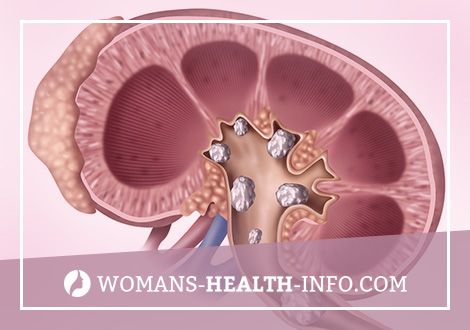What is Oliguria and Anuria?
Oliguria is a slowdown of urine in the body, which can talk about many diseases. Oliguria can not be considered an isolated disease, it is a symptom that can talk about certain disorders.
Causes of Oliguria and Anuria
If you have no discomfort with an empty bladder, then there is no cause for concern. Such situations can occur if you are in a hot environment – in this case, the body removes liquid with sweat. Also, the amount of urine released is affected by how much fluid you consumed per day. If you did not drink anything and did not eat liquid foods, a small amount of urine will be released. If this condition persists for 2-3 days or more, consult a doctor who will examine you, interrogate and, possibly, send you for an examination of the body.
Since there are many causes of oliguria, they are divided into groups. The first group includes conditions in which additional excretion of fluid from the body is observed. This is a long diarrhea, repeated vomiting, profuse sweating, bleeding. The cause of olirugia can be heart muscle disease, blood poisoning, damage to blood vessels, vasculitis, infections and burns.
The following group of causes of oliguria is kidney disease:
- renal failure
- glomerulonephritis
- renal vascular pathology
- renal vascular pathology
- hemolytic syndrome
- hematologic disorders
- renal vein embolism
In some cases, oliguria occurs when the ureter is blocked with a stone, tumor formation, blood clot. This group can conditionally be called mechanical causes. Also among the reasons may be: narrowing of the urethra, prostate disease, bladder cancer, a long course of medication, and kidney injury.
Pathogenesis during Oliguria and Anuria
Normally, a person should produce 1.5 liters of fluid per liter. With oliguria, the volume produced is reduced to about 400-500 ml. Oliguria in diagnosis can be confused with difficulty in excretion, the cause of which is mainly a malfunction of the bladder. Oliguria can be suspected if you rarely go to the toilet.
Symptoms of Oliguria and Anuria
The amount of urine secreted by the body decreases, a person rarely goes to the toilet to cope with small needs. Depending on the cause of the disease, oliguria and anuria may be accompanied by pain, pulling sensations, discomfort in the abdomen, etc.
Diagnosis of Oliguria and Anuria
Basically, to establish the cause of oliguria, it is enough to pass a general analysis of urine and blood. If kidney function is impaired, then the tests will show the protein and white blood cell counts are above normal, and the epithelium in the urine (which lines the walls of the kidneys) and some red blood cells will also be detected.
Before starting treatment, you must definitely find out the nature of the symptom. For this, the doctor can prescribe an ultrasound scan, computed tomography of the urinary system, etc.
Treatment of Oliguria and Anuria
When identifying an infectious disease as the cause of oliguria, doctors attribute antibiotics to the patient. The choice of medicine depends on which pathogen has been identified. With pyelonephritis, glomerulonephritis and other dangerous diseases, the patient must adhere to a special diet in which many foods are simply not allowed to the patient.
Oliguria can occur from kidney stones, then resort to surgical methods of treatment. If malignant neoplasms are detected, the operation should be done immediately. Oliguria is a reversible condition. As soon as the patient is cured of the cause (underlying disease), the formation of urine in the body returns to normal. If there is no cure, the symptom progresses, evolving into anuria. This is a complete cessation of urine formation.
Anuria as an extreme form of oliguria occurs with a whole list of serious kidney diseases, including a malignant tumor, kidney stones and kidney failure in adults, children and adolescents. In some cases, in the treatment of oliguria, an opposite condition called polyuria appears. This symptom manifests itself in frequent urges to the toilet, while 2 or more liters of urine are released per day.
Prevention of Oliguria and Anuria
It is necessary to treat kidney diseases in a timely manner, drink a sufficient amount of liquid and undergo a medical examination if suspicious symptoms are detected.

